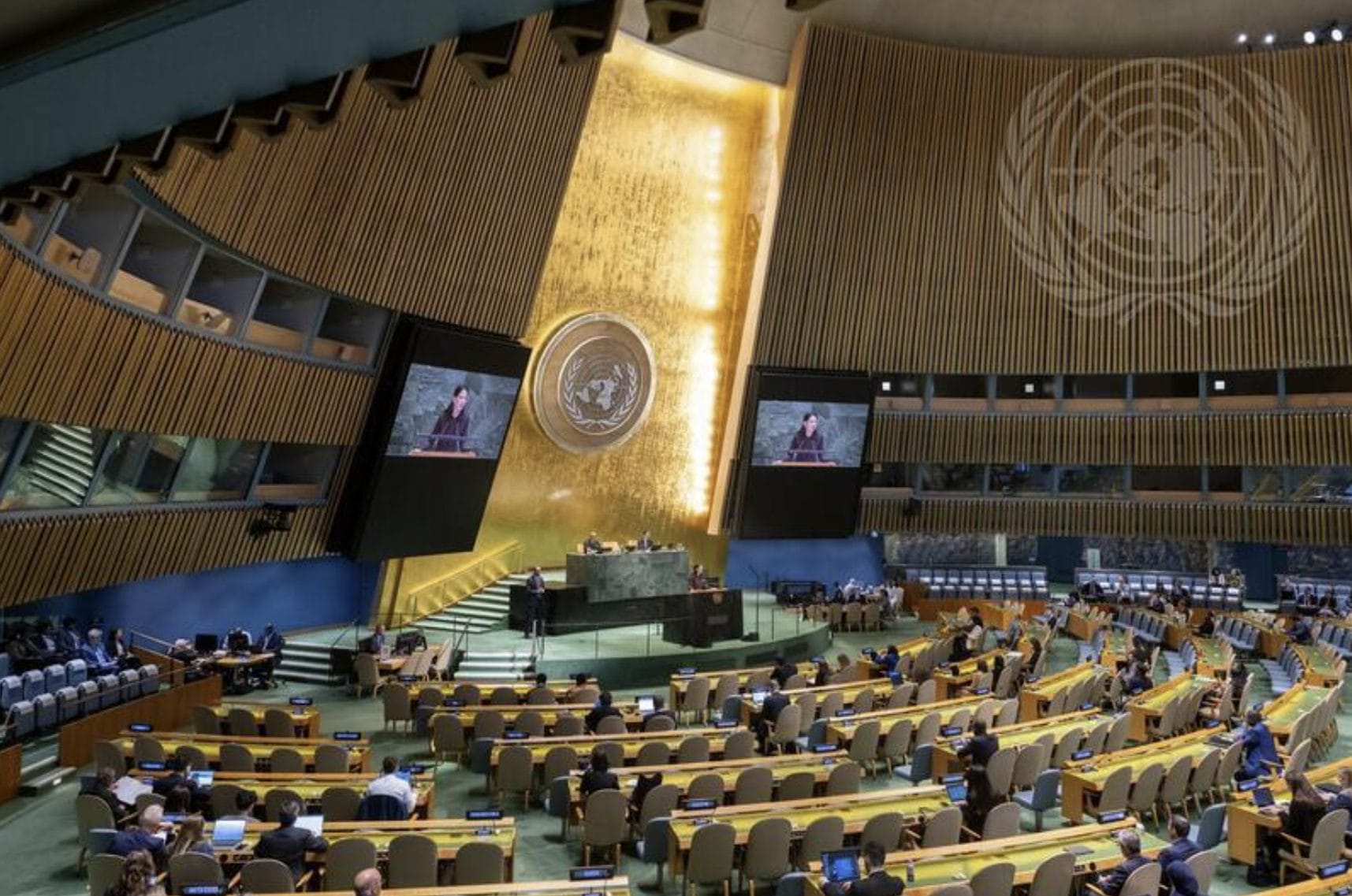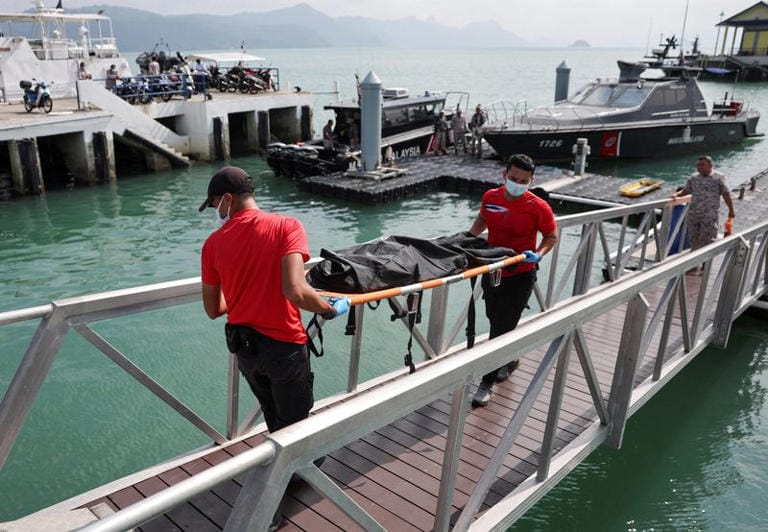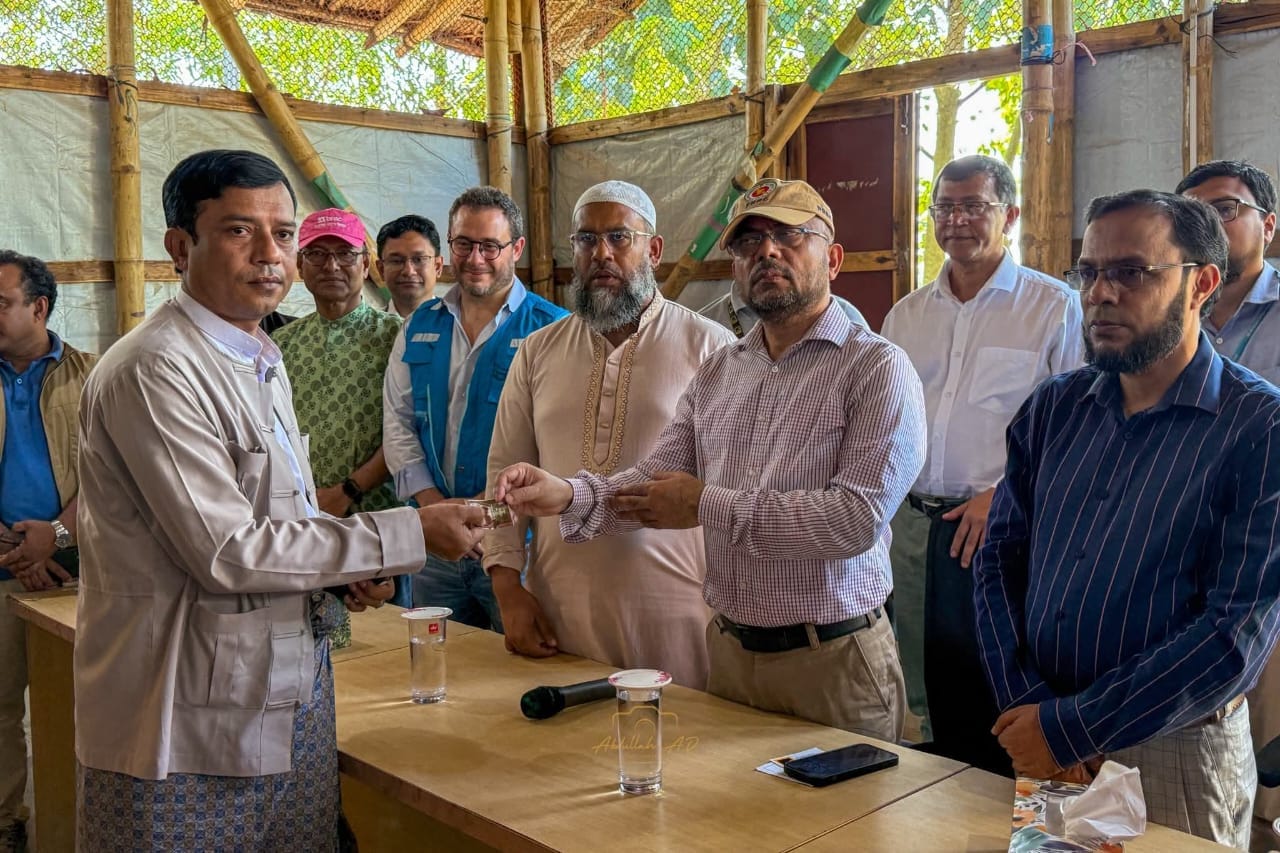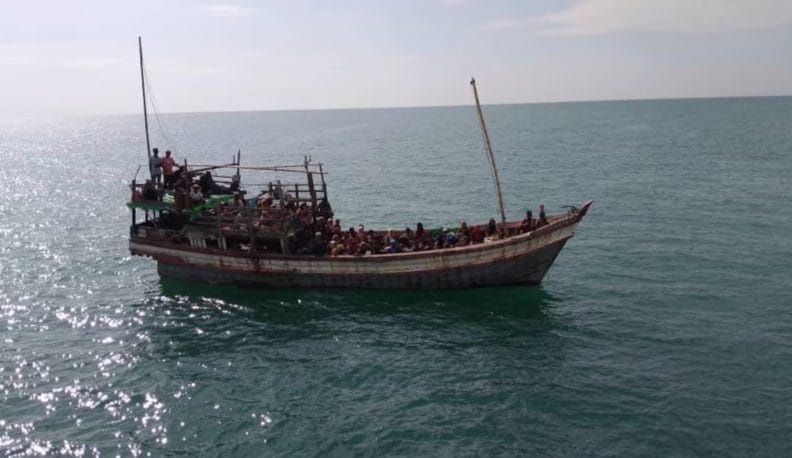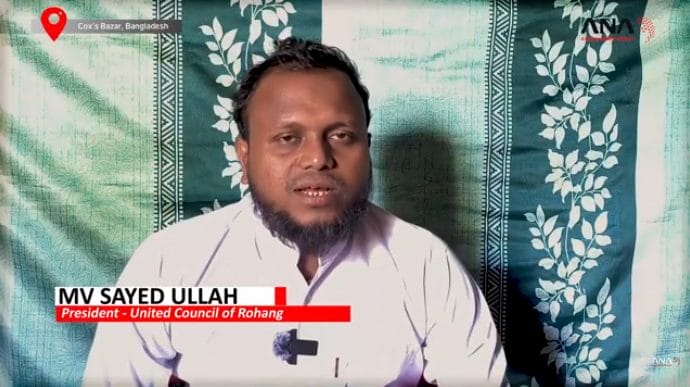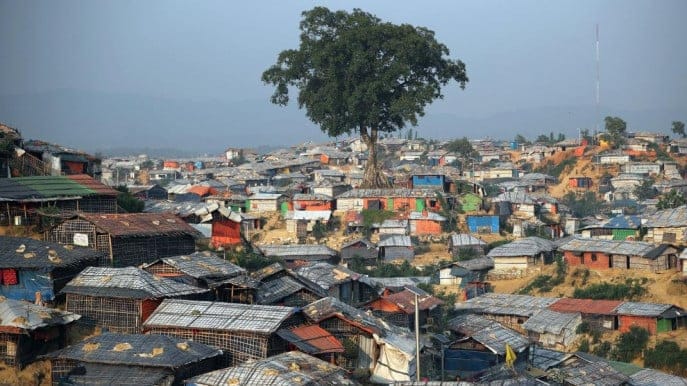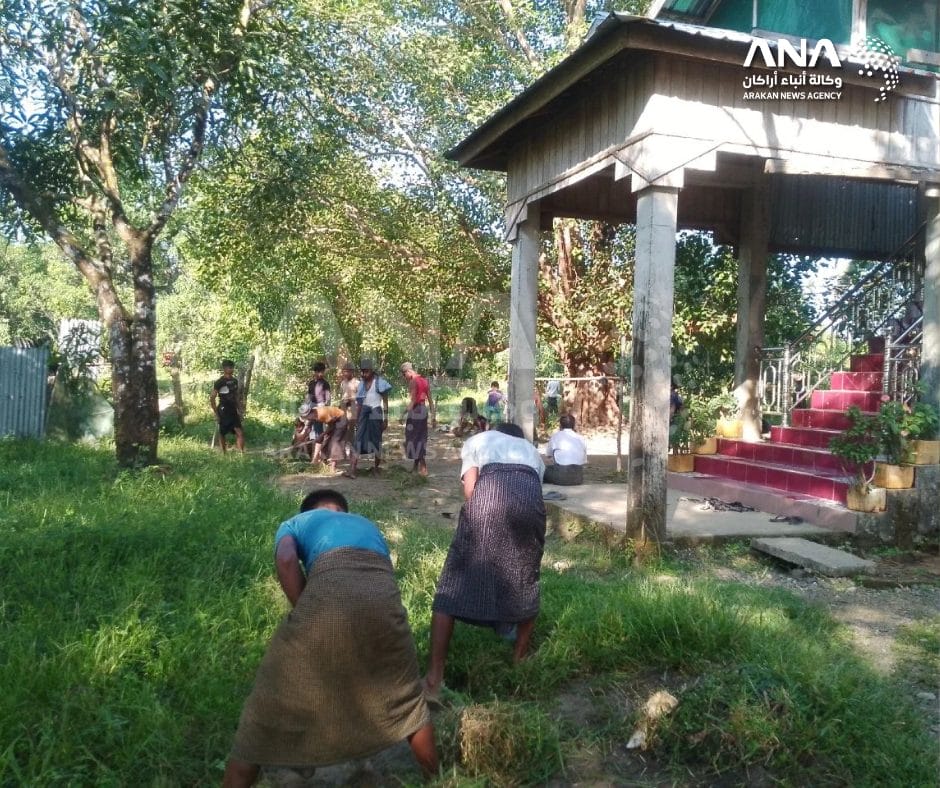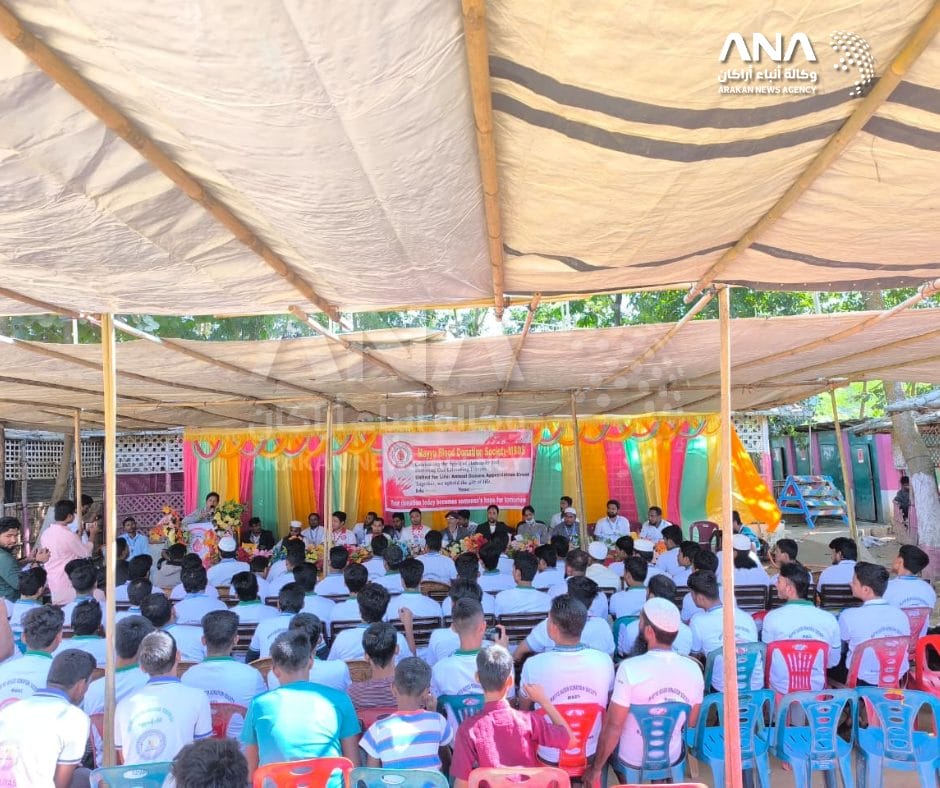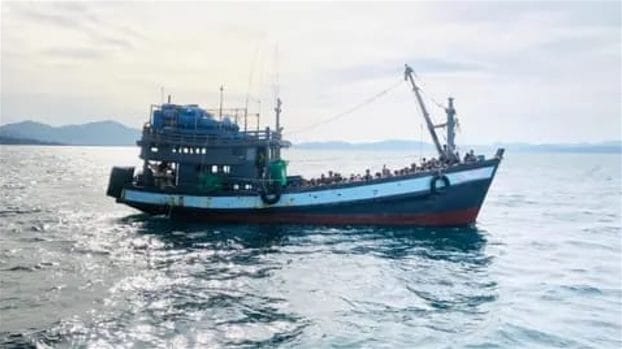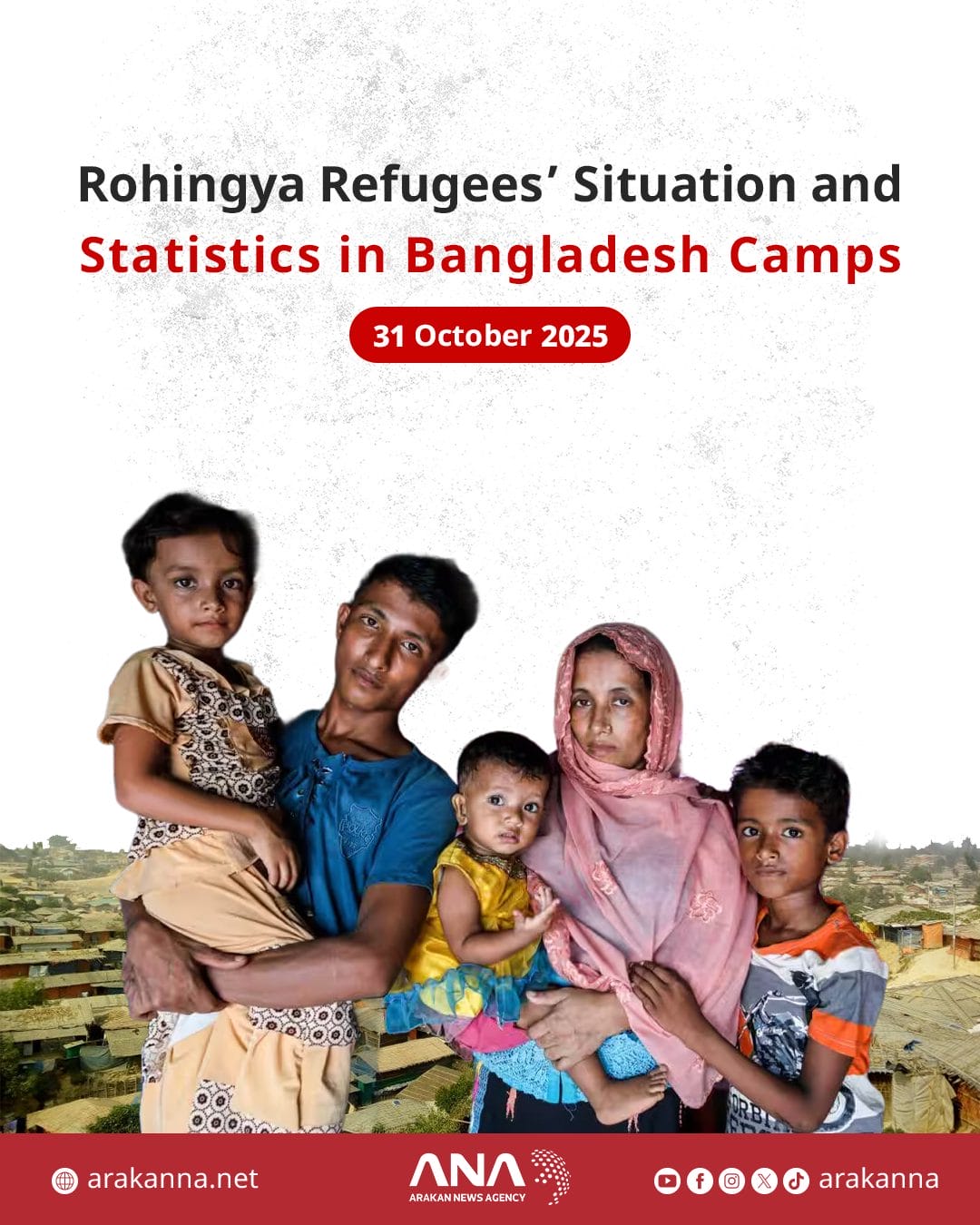Arakan News Agency
In a high-level UN conference, the first of its kind addressing the Rohingya crisis on Tuesday, international voices called for protection and justice for the Rohingya, in addition to holding perpetrators of crimes against them accountable at the International Criminal Court.
The conference aimed primarily to bring the Rohingya issue back into the spotlight, attract international attention to it once again, assess the situation on the ground, and discuss precise timelines for implementing sustainable solutions to the crisis. These solutions include the voluntary and safe return of Rohingya refugees to their homeland in the Arakan state, western Myanmar, where they faced genocide at the hands of the Myanmar army in 2017, and continue to suffer violations by the Arakan Buddhist militias (Arakan Army) currently controlling the state.
General Assembly President Annalena Baerbock highlighted the immense hardships faced by Rohingya refugees in Bangladesh camps, where they were forced to live after fleeing Myanmar with their children on their backs, emphasizing that Bangladesh cannot bear this burden alone.
She continued, stating that more than 3.5 million Rohingya inside Myanmar are in urgent need of humanitarian aid, and that the humanitarian needs and response plan for Myanmar in 2025 has been funded only at 12%. She pointed out that the international humanitarian response must align with the Rohingya’s great resilience.
Additionally, the UN High Commissioner for Refugees, Filippo Grandi, described the Rohingya plight as “unique” as they continue facing discrimination, deprivation of rights, and abuse while caught amidst multiple ethnic conflicts. They face the burning of their villages, exclusion from work and services, and ongoing denial of identity.
Grandi stressed that the humanitarian response still suffers from chronic underfunding and that numerous risks threaten the refugees, including children dying from malnutrition or people dying at sea as the number of refugees undertaking perilous sea journeys increases.
The UN High Commissioner for Human Rights, Volker Turk, depicted life in Myanmar as potentially “the worst ever” for the Rohingya and other minorities, stating it represents another dark chapter in a long history of persecution. He asserted that any planned elections by the Myanmar military cannot be free or fair since the stateless Rohingya will not be allowed to vote.
He continued, noting that he saw “deep despair” in the eyes of women and girls he met in Arakan state. He affirmed that the solution lies in de-escalation, protecting civilians, and ensuring humanitarian aid access—not elections—and that support for the refugees in Bangladesh should continue, while Myanmar’s situation should be referred to the International Criminal Court.
**The Solution Starts from Myanmar**
For his part, the special envoy of the Association of Southeast Asian Nations (ASEAN) to Myanmar, Tan Sri Osman Hashim, stated that Arakan state still bears the brunt of the conflict, which exacerbates a plight predating the 2021 coup. He stressed the need for comprehensive dialogue to find a peaceful resolution to the crisis in Myanmar, calling for a change in conditions, immediate cessation of violence, increased humanitarian funding, and guaranteeing the safe, voluntary, and dignified return of refugees.
Several countries renewed their calls for urgent actions to resolve the prolonged Rohingya crisis, warning that the situation cannot be allowed to persist for decades. Bangladesh’s interim Prime Minister, Muhammad Yunus, said that the Rohingya ordeal has continued since the beginning of the genocide, and the crisis “began in Myanmar, and its solution lies in Myanmar,” cautioning that as aid dwindles, the only peaceful option remains starting their repatriation to their homeland.
Yunus urged the international community to establish a practical roadmap for the safe and dignified return of refugees and exert effective pressure on Myanmar to halt persecution and achieve stability in Arakan state, indicating that his country is deemed “a victim of the crisis” and forced to bear “enormous financial, social, and environmental costs.”
In similar vein, Indonesia’s Foreign Minister Sujiono affirmed that the Rohingya tragedy is inseparable from the Myanmar crisis and that peace requires comprehensive dialogue in alignment with ASEAN’s five-point consensus, adding that “eight years of displacement is already too long and must not turn into decades of despair.”
Malaysia’s delegate described the meeting as “long overdue,” adding that attempts to erase the identity and heritage of the Rohingya violate international human rights laws and must be rejected, calling for a sustainable solution guaranteeing a safe and dignified return. Meanwhile, Thailand’s representative emphasized that humanitarian aid is essential but not a permanent solution, asserting that the collective goal should be the voluntary, safe, dignified, and sustainable return of the Rohingya.
Poland’s representative expressed concern over the use of advanced technologies against civilians in Myanmar, urging member states to refrain from enabling the Myanmar military to launch attacks on civilians, and welcomed calls for a global ban. The European Union’s representative called for justice for the Rohingya, who deserve dignity, safe return, full citizenship, and equal rights.
On behalf of the Organization of Islamic Cooperation, Turkey’s representative condemned what he described as the deliberate and systematic ethnic cleansing strategy against Rohingya Muslims, affirming that Myanmar must fully comply with International Court of Justice rulings obligating it to prevent genocide and protect evidence, and intensified diplomatic pressure, sanctions, and support for host countries of the Rohingya should be conducted by the international community.
The first session of the UN high-level conference on the Rohingya crisis featured moving interventions by Rohingya activists who presented testimonies of systematic violations and ongoing suffering in Arakan state, western Myanmar, affirming that the genocide against the Rohingya did not end in 2017 and they are still used as human shields with escalating violence. UN officials and human rights activists called for enhancing international solidarity and crafting sustainable political solutions to end decades of oppression, displacement, and humanitarian suffering faced by the Rohingya.

